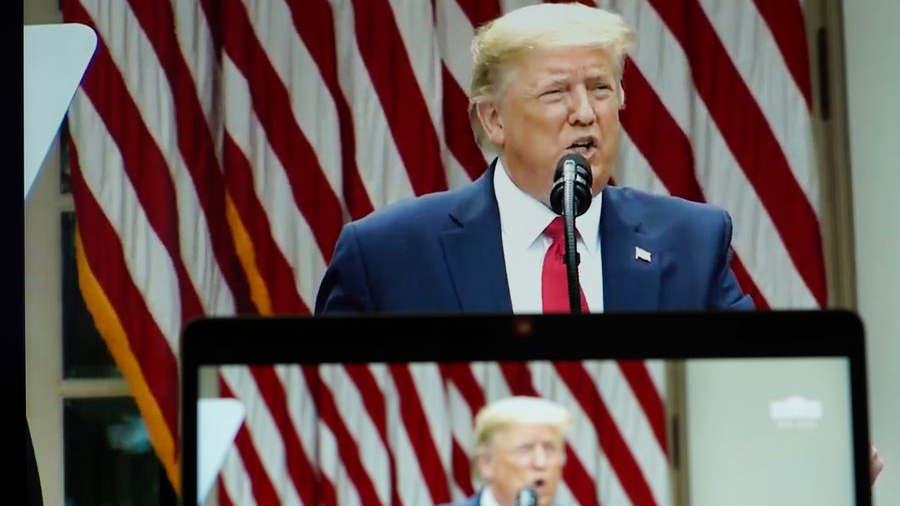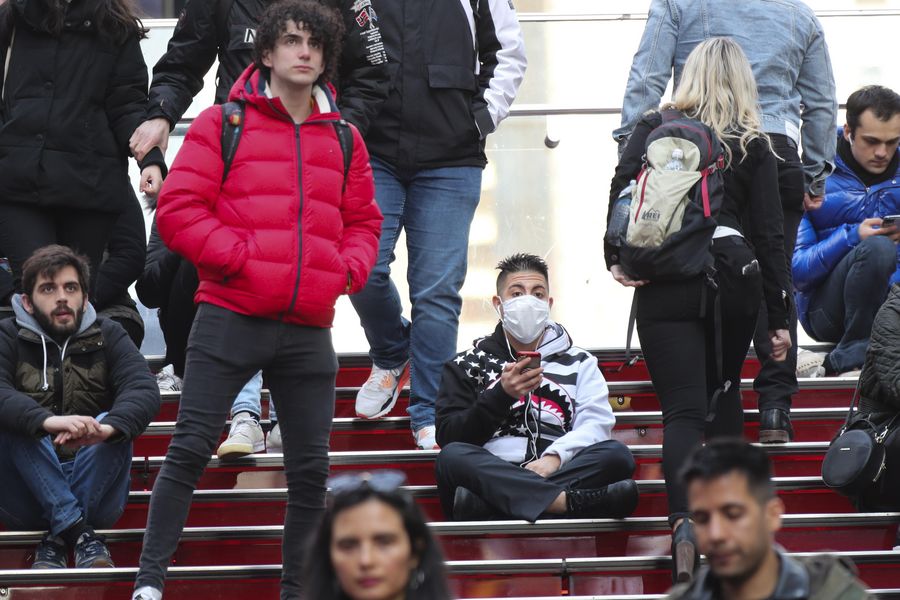
U.S. President Donald Trump speaks at a press conference at the White House in Washington D.C., the United States, May 29, 2020. /Xinhua
U.S. President Donald Trump speaks at a press conference at the White House in Washington D.C., the United States, May 29, 2020. /Xinhua
Editor's note: John Gong is a professor at the University of International Business and Economics and a research fellow at the Academy of China Open Economy Studies at the University of International Business and Economics (UIBE). The article reflects the author's views, and not necessarily those of CGTN.
U.S. President Donald Trump's first use of the phrase "China Plague" sparked my deepest fear that he attempts to lead America towards a path of scapegoating, hatred and possibly persecution of Chinese Americans and people of the Chinese nation.
At a Rose Garden press conference on June 5, while touting the surprising drop in the unemployment rate, he said, "When we had these tremendous (employment) numbers, when we had, just prior to the China Plague that floated in, we had the best numbers for African Americans, Hispanic Americans, Asian Americans, and for everybody."
His reference to "China Plague" cannot be viewed as an isolated comment. There is a contextual background and a history of events targeting China leading up to his remark. Trump was the first to declare the "Chinese virus," pushing the envelope further from his Secretary of State Mike Pompeo's wicked "Wuhan virus" invention.
Several days ago he peddled a thinly-veiled conspiracy theory during an interview with Fox News by asking why COVID-19 was not spreading as widely to other parts of China outside of the city of Wuhan as to other parts of the world.
Then we have to relate to Trump's much earlier statements back in March when he referred to himself as a "wartime president" fighting the "invisible enemy." By arriving at the new "China Plague" altitude, Trump is step-by-step repeating history, the history of a pandemic-hate nexus observed after almost all major plagues in the past.
So far, analysts and observers have been interpreting Trump's China-mongering as part of a strategy to salvage his faltering reelection campaign with shifting the blame and passing the buck to China in the wake of his total fiasco in handling the coronavirus crisis in America.
Albeit not disputing this theory, I am starting to see something more evil coming out of the worst president in U.S. history. He is essentially fanning a hate campaign against the Chinese people and against the backdrop of an already strained Sino-U.S. relationship.

Tourists look around at Times Square in New York, the United States, March 5, 2020. /Xinhua
Tourists look around at Times Square in New York, the United States, March 5, 2020. /Xinhua
Throughout history, scapegoating and violence against victims and the innocent are near universal aspects of big epidemics. In writing about Jews' horrible treatment during the mid-14th century when the Black Death pandemic ravaged Europe, wiping out one third of its population, historian Carlo Ginzburg wrote, "the prodigious trauma of great pestilences intensified the search for a scapegoat on which fears, hatreds and tension of all kind could be discharged."
There is evidence now of Jews being massacred during the Black Death time. Starting in Switzerland in 1348, as rumors of the plague spread from Italy and France, Jews were accused of poisoning wells based on questionable confessions extracted through torture. These pogroms across Jewish communities in Europe probably constituted the worst persecution of Jews before the Holocaust.
Targeting of Jews during the Black Death was primarily due to the lower death rates among Jews, who cleaned out their grain supply for Passover once a year, most likely contributing to the lowering of their chances of being exposed to rats, carriers of the plague.
Trump's question about China's lower infection rates bears a striking resemblance to the question about the lower Jewish Black Death rates.
There were also pre-existing social and political conditions unfavorable to the Jewish communities in Europe at the time before they were singled out for scapegoating. One of them was money-lending, the root of anti-Semitism at the time. Lending money and charging an interest was perceived as usury by Christian teaching, but money-lending was the mainstay of Jewish economic activity, the means by which the Jewish community as a whole maintained its economic viability.
Today, the theme that belies the grudge from Trump and his political base against China is about trade deficits and job losses. These are the equivalence of social and political conditions centered on interest rate payments to Jews already pre-existing before anti-Semitic pogroms sweeping through Europe during the Black Death time.
In conclusion, Trump's reference to "China Plague" should not be taken lightly. Had this country been the size of Grenada, we would have been run over by the Marines by this time given Trump's demagoguery as vicious as the virus itself. As the November election day nears, we had better get prepared for more attacks against China from Washington.
(If you want to contribute and have specific expertise, please contact us at opinions@cgtn.com.)